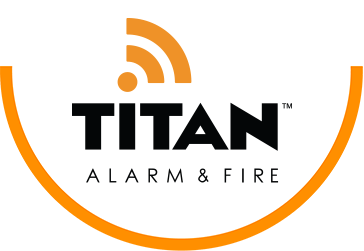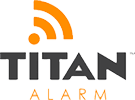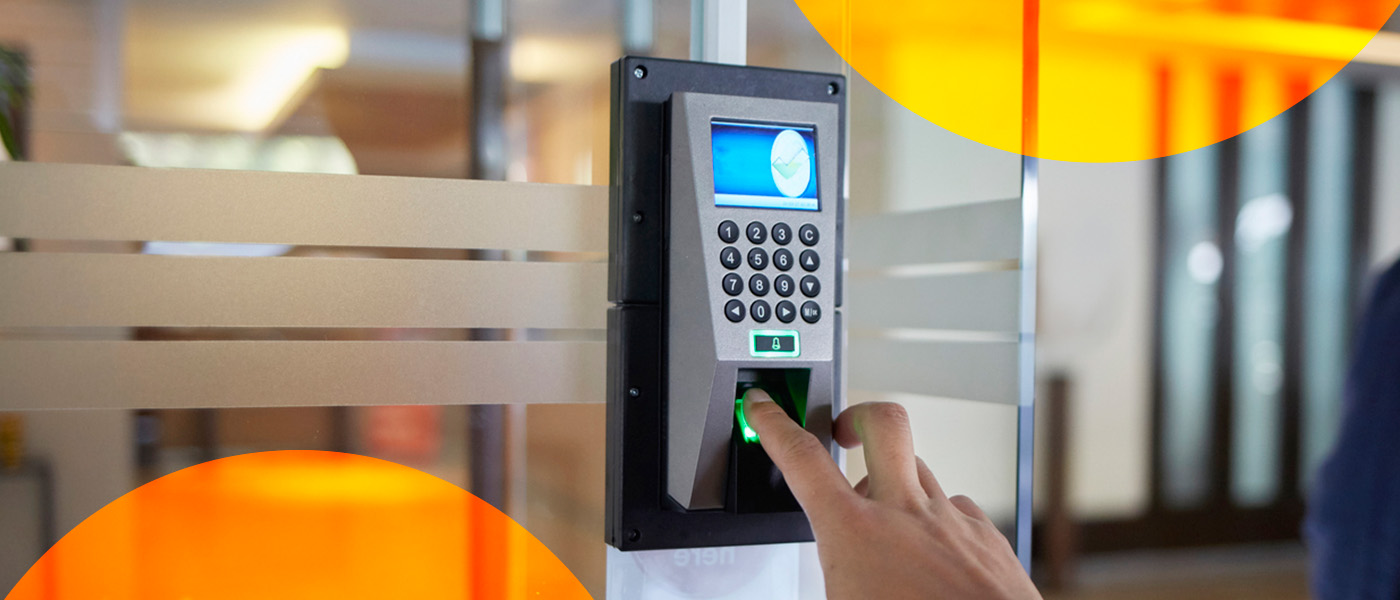
Like it or not, if you’re in an airport, school, airport, grocery store or nightclub, there’s a good chance there’s at least one security camera keeping a watchful eye on you. The increasing presence of security cameras in our society has fueled a heated debate regarding whether this is a positive or negative development. In this post, we’ll explore the pros and cons of using surveillance cameras in public places.
Pros of Security Cameras in Public
There are several advantages to having cameras monitor public places. Cameras can help benefit homeowners, business owners, law enforcement and any private citizen that uses public spaces.
Perhaps the most obvious benefit of installing cameras in public places is enhanced safety. Cameras can provide a sweeping panoramic view of a wide area or target specific locations noted for heavy criminal activity. A visible camera can also serve as a deterrent that can prevent crimes such as shoplifting, muggings and thefts from occurring. If a criminal sees a camera, it may be enough to stop them from doing whatever illegal activity they were planning. And in a time where we live with the constant threat of terrorism, security cameras can spot suspicious individuals before they can act. This proactive approach to crime can help prevent losses and unnecessary suffering. If you know that there is a way to stop something bad from ever happening, why wouldn’t you do it?
When crimes are committed, video cameras with recording capabilities can provide valuable evidence to law enforcement and prosecutors. Law enforcement can use the footage to identify and apprehend the offenders, while prosecutors can use it as proof of alleged perpetrator’s guilt. This knowledge can save law enforcement from identifying the wrong person and arresting the wrong people. In a legal setting, it is very difficult to argue against video footage of a crime. It’s a pretty foolproof piece of evidence. Security cameras can also prevent false claims and fraud. If a person is lying about an incident, security camera footage can easily disprove their claim. This can help law enforcement get back to solving real cases faster.
“Is the government recording me in public?” That’s a common concern many people have regarding the use of cameras in public places. While the short answer is no, some municipalities do use video cameras to catch drivers who run red lights and to monitor the flow of traffic in congested areas. The former can increase driver and pedestrian safety, while the latter can provide timely traffic and road condition information to commuters. Cameras monitoring road activity can also help identify stolen vehicles quicker. Without security cameras, law enforcement must rely only on eyewitness reports of sightings of the stolen vehicle. With cameras, officials can monitor cameras in the area around the time of the crime to find the vehicle a lot faster.
Security cameras can also lower insurance costs for homeowners and businesses. However, this is up to your insurance company. If you are considering installing security cameras at your home or business, you should consult with an insurance representative to see if they offer discounts or incentives for doing so. If your insurance company does offer these perks, they are doing so because it is a cost-effective practice. For example, if you have cameras posted around your home or business, you are less likely to have a break-in or other crime committed on your property. Therefore, you are less likely to have to file an insurance claim. It saves both you and your insurance company money when you install security cameras at your home or place of business.
There is not a lot of large-scale data about the effectiveness of security cameras in public places, but some smaller-scale data collection has shown that these cameras lower crime rates and are effective in their areas. The presence of a video camera in a public place could be enough of a deterrent to a criminal, or even a sign posted that states the area is under video surveillance. However, more data is necessary to show whether security cameras are as effective as we think they are. It should be a priority to collect more data to back up the idea that security cameras are effective in every scenario and area. Figuring out if security cameras, or other monitoring practices, are the most effective will help make public areas the safest they can be for all citizens.
Cons of Security Cameras in Public
While security cameras posted in public areas can provide many benefits to the public, they do pose some concerns that are necessary to take into consideration.
Security cameras monitoring public areas can appear to some as an invasion of privacy. If an innocent person is being monitored who has absolutely no intention of committing a crime, they will still be monitored. The person watching the video cannot tell whether something will happen or not. This uncertainty can cause many bystanders to be monitored needlessly. However, this is necessary in order to catch crimes. While most people agree that we face serious security challenges these days, not everyone believes installing security cameras in public places is an acceptable method for protecting our citizens. These folks would rather maintain their privacy than having the uneasy feeling that “Big Brother” is watching their every move.
It can cost a lot of money to install security cameras, monitors and related equipment in a public area. This equipment is expensive to purchase and must also be maintained. Many of these cameras are outdoors, so they are weathering rain, snow, wind and every other natural phenomenon. When the cameras are not working properly, they are basically useless. Costs can increase with this extra maintenance and the need to replace equipment when it breaks. Besides the cost of purchasing the equipment and maintaining it, there is also the cost of labor. Someone has to be on the receiving end of the security camera footage to make them effective at all. The more cameras there are, the more people you need to watch the surveillance footage. This means an even higher cost. In a time where budgets are tight, and businesses and government entities must make every dollar count, many people wonder if cameras are worth the investment.
In some cases, it can be difficult to prove that a security camera is an effective tool for deterring or preventing criminal activity. Brazen criminals may still apply their trade regardless of whether they spot a camera. Additionally, terrorists or suicide bombers are not concerned about the presence of cameras — in fact, many hope their heinous acts will be recorded for the world to see. Currently, there is not a great deal of hard data backing up the effectiveness of security cameras. Once there have been more studies done on the effectiveness of security cameras in public places, we must rely on the ideas behind their implementation. However, it is important to make sure the theories behind those ideas are indeed correct.
Another con of security cameras in public areas is that they are not currently considered a type of public record. If you have a concern as a private citizen, you cannot request a copy of video surveillance like you could another type of public record, like a marriage certificate. When your tax dollars are being used to collect and monitor a type of information, some people would argue they have a right to access that information.
However, this could also be seen as a pro, depending on your point of view. If any person could access copies of video surveillance taken at public areas, it would be a huge privacy issue. Any type of information, including video collected from cameras posted in public areas, can easily be used for malicious reasons. For example, a woman attempting to flee from an abusive partner could be tracked by accessing video information if it was available for public access. It would be very sad to see something that was intended to keep people safe actually cause something bad to happen.
Like many other forms of technology, security cameras can be hacked. This poses a serious threat to public safety, especially if criminals were to access the cameras to use for their benefit. Imagine this: a hacker breaks the security of a public camera and either turns it off or turns it away from the area where they plan to commit a crime. This would make it much easier for that person to get away with a robbery or another type of crime. However, even though security cameras can be hacked, there are also preventative measures that can keep this from happening. Installing firewalls, secure passwords and other cybersecurity measures can help keep video surveillance footage safe from falling into the wrong hands.
Titan Alarm Can Meet Your Security Camera Needs
If you believe the pros of security cameras outweigh the cons, Titan Alarm, Inc. can design and install a state-of-the-art camera system that meets your unique security requirements. Contact us to schedule a free consultation today.
Updated by Titan Alarm on November 5, 2018.






 “Post Security adds a very loyal customer base of intrusion alarm systems to Titan’s customer portfolio,” said Danny Holmgren, President of Titan Alarm. “Scott ran a great operation and provided incredible customer service, as evidenced by the praise we have heard from his customers since we began servicing them, and his low customer attrition. We are thrilled that when the timing was right, Scott chose Titan Alarm as the best fit to take care of his customers into the future.”
“Post Security adds a very loyal customer base of intrusion alarm systems to Titan’s customer portfolio,” said Danny Holmgren, President of Titan Alarm. “Scott ran a great operation and provided incredible customer service, as evidenced by the praise we have heard from his customers since we began servicing them, and his low customer attrition. We are thrilled that when the timing was right, Scott chose Titan Alarm as the best fit to take care of his customers into the future.”



 It’s hard to pick up a newspaper or watch a newscast without coming across a story about a devastating fire in a business establishment. Approximately 80,000 commercial fires occur in the U.S. each year, resulting in about 18,000 injuries, 3,000 deaths and billions of dollars in property damage. Fire is also one of the major causes of accidents in the workplace.
It’s hard to pick up a newspaper or watch a newscast without coming across a story about a devastating fire in a business establishment. Approximately 80,000 commercial fires occur in the U.S. each year, resulting in about 18,000 injuries, 3,000 deaths and billions of dollars in property damage. Fire is also one of the major causes of accidents in the workplace.